1. Economics is the scientific study of people and institutions from the point of view of how they produce and consume goods and services and face the problem of scarcity.
2. Microeconomics looks at the interactions of producers and consumers in individual markets.
3. Macroeconomics is the study of the economy as a whole, and is concerned with aggregates.
4. Economists often disagree, but they do agree on a large body of economic theory.
5. Economic theory is an abstract way of thinking that allows the development of principles, or tools, that can be used to study complex social issues.
6. The self-interest hypothesis is a very basic assumption of economic theory. Although Economists recognize that economic behavior is a complex process, it is assumed in economics that human beings pursue their own self-interest.
7. The economic approach is positive, or non-normative; it can't predict the future, but is can make statements of an if A then B type.
8. Because of their individualistic approach, economists tend to look to the market to solve social problems. In analyzing problems, economists spend a great deal of time clarifying options and looking at costs. In examining possibilities for substitution, economists look at costs and benefits at the margin.
9. The menu of topics to which we can apply economic analysis is endless.
Summary 2
1. We live in a world of finite resources, but human wants are insatiable. This leads to a fundamental problem in economics-scarcity. We cannot have everything we want, therefore, we must economize and make choices.
2.The production possibilities schedule and curve illustrate the problem of scarcity. if society wants more butter, it must accept fewer guns.
3. The cost of an extra unit of butter is the number of guns that must be given up to get that unit of butter. This is defined as the opportunity cost of that unit of butter.
4. The more butter we have, the greater the number of guns we must sacrifice to get one more unit of butter. This is the principle of increasing opportunity costs.
Summary 31까지
1. Economics is the scientific study of people and institutions from the point of view of how they produce and consume goods and services and face the problem of scarcity.
경제학은 그들이 어떻게 생산과 소비에서 상품과 서비스에 부족의 문제에 직면해 있는가 하는 관점에서 사람 그리고 교육기관의 과학적인 학문이다.
2. Microeconomics looks at the interactions of producers and consumers in individual markets.
미시경제학은 개별 시장에서 생산자들과 소비자들의 상호작용을 보여준다.
3. Macroeconomics is the study of the economy as a whole, and is concerned with aggregates.
거시경제학은 총체적인 것에 대해 관심을 가지며 경제 전체적으로 연구하는 것이다.
4. Economists often disagree, but they do agree on a large body of economic theory.
경제가들은 종종 동의하지 않는다. 그러나 그들은 경제 이론의 많은 수(부분)를 동의한다.
5. Economic theory is an abstract way of thinking that allows the development of principles, or tools, that can be used to study complex social issues.
경제 이론은 복잡한 사회적인 이슈를 연구하기 위해 사용될 수 있는 법칙이나 수단의 발전을 인정하는 추상적인 사고방식입니다.
6. The self-interest hypothesis is a very basic assumption of economic theory. Although Economists recognize that economic behavior is a complex process, it is assumed in economics that human beings pursue their own self-interest.
이기주의(사리사욕) 가설은 경제이론의 매우 기본적 가정이다. 비록 경제학자들은 경제 행동이 복잡한 과정이라 인정하지만 인간은 그들 자신의 사리사욕을 추구한다고 경제학에서 가정된다.
7. The economic approach is positive, or non-normative; it can't predict the future, but is can make statements of an if A then B type.
경제적인 접근은 명확하거나 혹은 표준(규범)적이지 않다. 그것은 미래를 예언 할 수는 없으나 만약 A가 그렇다면 B일것이다라는 타입으로 설명 할 수는 있다.
8. Because of their individualistic approach, economists tend to look to the market to solve social problems. In analyzing problems, economists spend a great deal of time clarifying options and looking at costs. In examining possibilities for substitution, economists look at costs and benefits at the margin.
경제학자들은 그들의 개인주의적 접근방식 때문에, 사회적 문제들을 해결하기 위해 시장에 의지하는 경향이 있다. 문제를 분석하는데 있어서, 경제학자들은 선택할 수 있는 조건들을 명확화 하고 비용을 살펴보는데 엄청난 정도의 시간을 들인다. 대체 가능성을 조사하는데 있어서, 경제학자들은 한계 상황에서의 비용과 효익을 살펴보게 된다.
9. The menu of topics to which we can apply economic analysis is endless.
우리는 경제 분석을 적용할 수 있는 화제의 메뉴는 끝이 없다.
Summary 2



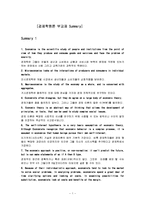
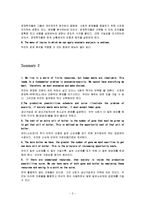
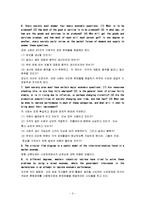
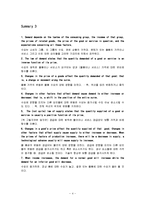
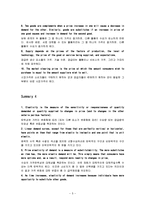
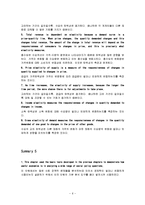
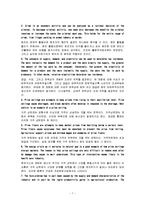
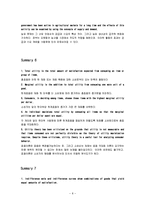
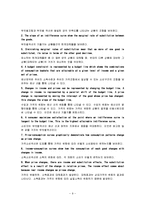
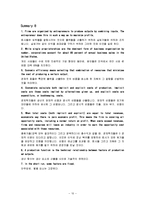
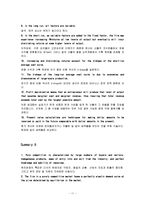
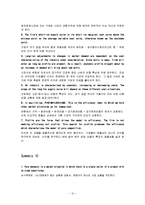
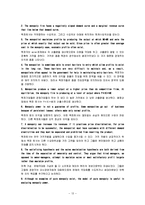
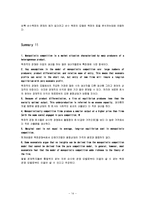
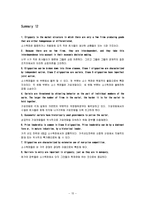
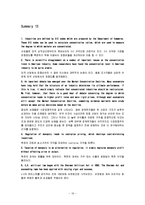
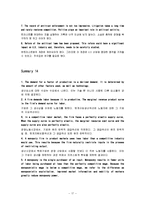
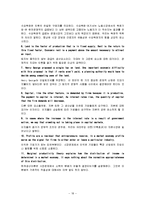
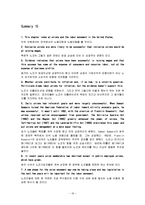
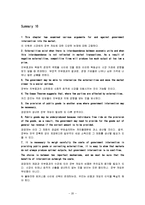
 분야
분야


